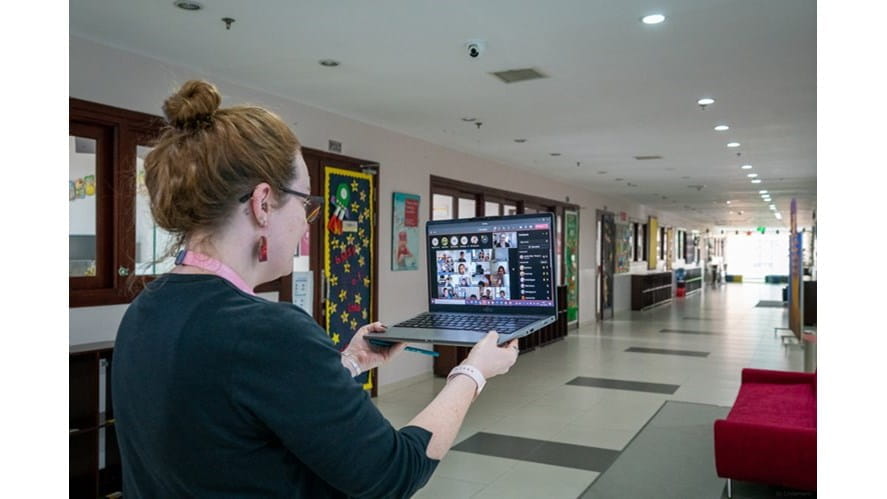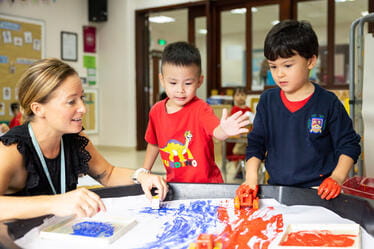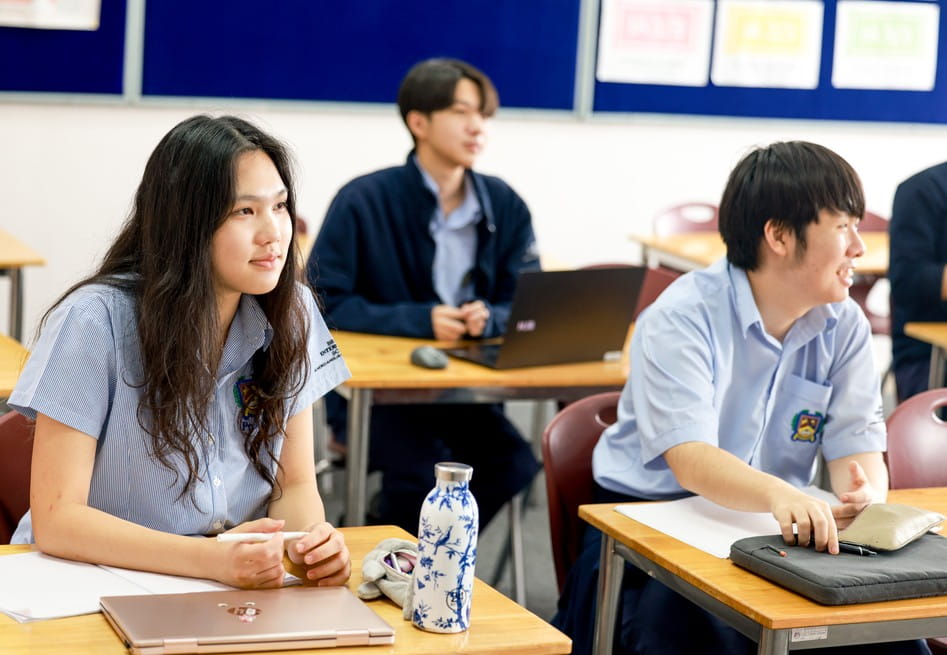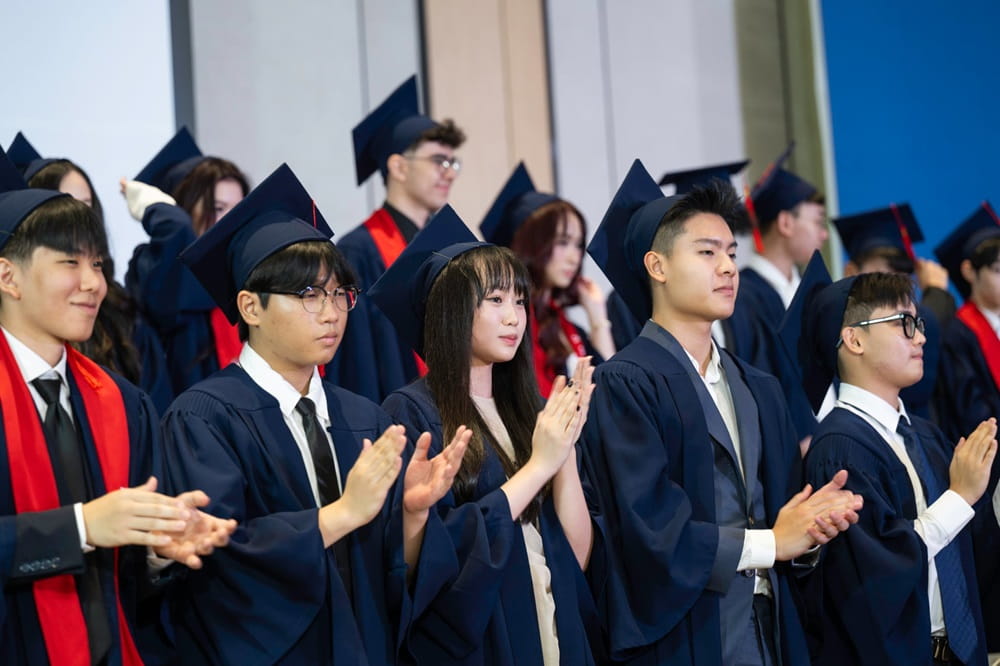How we support student well-being in a virtual school environment In our Virtual School Experience (VSE), we value the importance of well-being and understand that it is closely related to academic success.
At BIS Hanoi, the health and well-being of our students is always at the forefront of our minds. Our aim is to equip students with the tools they need to be happy, healthy people - individuals who can overcome challenges, interact positively with others and achieve their full potential.
In our Virtual School Experience (VSE), we value the importance of well-being and understand that it is closely related to academic success. One of the challenges for us during VSE is ensuring our students have time to experience passive social opportunities that occur naturally during the school day when we are in-person learning.
Implementing new well-being initiatives into the Primary school curriculum
Throughout our VSE, our teachers and students have continued to reflect on their emotional well-being in the Personal, Social and Health Education (PSHE) lessons. At a time when human interaction is increasingly important, our PSHE curriculum has worked tirelessly to encourage discussions, debate, and opportunities for peer-led meditations on global and local issues that matter the most to our students.
Across the Primary school, we follow the Jigsaw PSHE program. It is a progressive and effective scheme of work, aiming to prepare students for life, helping them know and value who they are and understand how they relate to other people in this ever-changing world.
Topics and issues discussed so far this year have included ‘Being in my World’ and ‘Celebrating Difference’. Both the topics have helped our students place their current learning in a global yet highly personal context. With the onset of VSE, we have all had to adapt, reflect, and refine our attitude and approach to learning. Whilst attending school in an online environment is new to us all, having explicit PSHE lessons each week that encourage compassion, empathy, and kindness have allowed our students to communicate openly.
In support of this approach in PSHE, we have been ably supported by topics on E-Safety in our Computing lessons as well as fun games and activities in social breakout sessions via Kumospace. Kumospace is an amazing platform that allows our students to play games, interact and most importantly, have fun whilst being supervised by a teacher in a safe environment. It is packed full of fantastic features which allow our students to connect with friends outside of their normal lessons. Each week, our students experience a different virtual room designed by their teacher, to complete Circle Time activities where they can discuss their feelings and worries, "run" around and play games in a range of different interactive areas. The students have given us brilliant feedback and shown us just how much they enjoy the variety that Kumospace lessons bring to their virtual learning experience.
Adapting the existing well-being curriculum in the Secondary school
During VSE, our existing student well-being provisions and the well-being curriculum in the Secondary school have been adapted to provide support that is tailored to this environment.
Form Tutors provide daily support and monitoring of each student’s well-being. As part of VSE, Secondary students have been starting each day with tutor time at 08:30 am. In these morning sessions, tutors ensure that students are supported, organised and ready for a day of learning.
During virtual school, core topics from the Well-being Curriculum including Health & Self Development, Relationships, and Living in the Wider World have been timetabled for Years 7-11. These topics have been accompanied by sessions on good sleep habits, balancing time online with other activities, and maintaining healthy habits and an active lifestyle. Students have also learnt how to develop skills which are important for their well-being, such as Emotional Literacy and Mindfulness techniques. Activities have been taking place in form groups, assemblies and year group events. Complementing these activities are a range of well-being resources available on the Student Intranet.
In addition to the tutor-led Wellness Curriculum, the Student Mental Health Team has been providing a range of support structures for their peers. This includes social media posts around the topic of mental health, as well as developing specific activities such as the upcoming gratitude activity.
Parents also have an important role to play in student well-being, which we explored as part of our presentation to parents on ‘Supporting Students During Virtual Learning’. The aim of the presentation was to provide support and information to parents on topics such as; the foundations of well-being, managing screen time and digital devices, creating quiet and calm work areas.
Finally, the pastoral care team has been providing additional guidance and resources for students and teachers alike. Students were provided with weekly top tips on managing different aspects of virtual learning, while teachers were trained on supporting students who may experience anxiety when school reopens. Years 10, 12 and 13 students have watched a video on reflection and Cognitive Behavioural Therapy, and there is also an upcoming webcast for students on managing their anxiety.
While attending school virtually can be a challenging time for students, we’ve been delighted to see a high level of engagement in our wellbeing initiatives from students and parents alike.
Emily Clark (Year 3 Teacher & PSHE Leader), Craig Driver(Phase 3 Leader) & Matt Greenwood (Guidance Counsellor)






